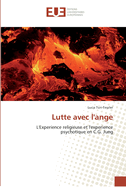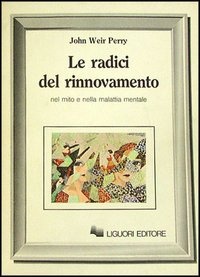>Teszler Lucia Angela Rodica
Personal information
*Date of birth: January 18th 1977
*Place of birth: Oradea, Romania
*Citizenship: Romanian
*Married, one child (b. 2006 with Down Syndrome)
Mother tongue: Hungarian
ACADEMIC FORMATION
* 2009, PhD in Philosophy and philosophical hermeneutics, University of Turin, Turin.
Title of the thesis: The religious and the psychotic experience in C.G.Jung
*1999, MA in Philosophy of Human Being, Babeş-Bolyai University, Cluj. Title of the
thesis: Self immage in ontological hermeneutics
*1997, BA in Philosophy, Faculty of History and Philosophy, Babeş-Bolyai University,
Cluj. Title of the thesis: The problem of the Truth in Michel Foucault
PAPERS PRESENTED AT CONFERENCES, PUBLICATIONS
Lotta con l'angelo, Ilmiolibro, Roma, 2013
Transilvania 1568, un'antico modello di interreligiosità, ilmiolibro, Roma, 2013
Esperienza religiosa ed esperienza psicotica in C.G.Jung , XVII Convegno nazionale dei dottorati in filosofia, Reggio Emilia, 4-7dicembre 2006
Morte e religione in C.G.Jung e Freud in Methaphysics 2006 Conference , Roma, July 6-9, 2006
The Hermeneutic of Evil in the Age of Dante, at Conference of Evil and Religion, vrije University ,Amsterdam, 17-19 March, 2005
Il significato metafisico del desiderio dell'immortalità, in Metaphysics 2003 Conference,Rome, July 2-5. 2003, p171-181
Verità, potere e desiderio in M.Foucault, 1997 TDK Undergraduate student conference, Cluj, 1997
BOOK REVIEW
Cos'č a religione oggi- Filoramo, Gentile, Vattimo, in Recensioni filosofiche n3, 2006
http://www.recensionifilosofiche.it/crono/2006-01/filoramo-gentile-vattimo.htm
Ten Lectures on Psychotherapy and Spirituality - Nathan Field (ed) per Methapsychology
online reviews
http://metapsychology.mentalhelp.net/poc/view_doc.php?type=book&id=3584
The Erotic Phenomenon - J.L.Marion pe Methapsychology online reviews
http://metapsychology.mentalhelp.net/poc/view_doc.php?type=book&id=4225
On Life After Death by Elisabeth Kubler-Ross on line review Nov 18th 2008
http://metapsychology.mentalhelp.net/poc/view_doc.php?type=book&id=4572&cn=389
Jewish Dharma by Brenda Shoshanna, PhD
http://metapsychology.mentalhelp.net/poc/view_doc.php?type=book&id=5014&cn=403
MEMBERSHIP
Semminario permanente Nietzscheano Research Group
WORK/TEACHING EXPERIENCE
1998/1999 as postgraduate student of Babes Bolyai University seminary for undergraduate
students about“Theories of desire: Platon, Spinoza, Freud” (supervised by Prof. Aurel Codoban)
and a seminary: “The symbol in C.G.Jung” (supervised by Prof. Aurel Codoban)
1997-2003 Highschool Teacher in Philosophy, Psychology, Civic Education,
2008 November, Semminar Scuola di Alta Formazione Filosofica (SdAFF) dedicated to PhD's and young researchers. I participated in the 5th Seminar held by Prof. Heller Agnes about
Postmodernism in Turin,Italy. 2005 October, 2006 May, 2007 November Seminario Permanente Nietscheano "Lo
Zarathustra di
Nietzsche", Centro ‘Colli-Montinari' di studi nietzscheani, Universities of Lecce amd Pisa, Italy
2008 June Library Research Stages for PhD thesis preparation in C.G. Jung Institute,
Zurich, Switzerland
LANGUAGES SKILLS
Hungarian (mothertongue level)
Romanian (mothertongue level)
French (fluent: very good comprehension, good speaking and writing)
Italian (fluent: very good comprehension, good speaking and writing)
English (good: reading comprehension- very good; Understand a clear universitary discours, speaking: good, writing acceptable, ),
Research results
SCHOLARSHIPS AND RESEARCH GRANT
2004-2007 International School of Advanced Study Turin Grant for foreign PhD students,
2005 ( January- February) Ecole Doctorale de Recherche en Psychanalyse, Paris, France, Visiting scholar under the supervision of Prof. Sophie de Mijolla Mellor
1999 (April) Young Scholar Grant for MA thesis writing, Jozsef Attilla University,Szeged, Hungary
1994-1997 Studentship, Babes Bolyai University, Cluj
1995 Summer University Participation, at “Open Society and its Friends” Summer
University, University of Pecs, Hungary
SOME OTHER CONFERENCES AND WORKSHOP PARTICIPATIONS
Thursday Evening’s Conferences at Legolibry Psychoanalitic Library at Turin
Plurienal Seminary : Spirituality in Occident and Orient, Centro Studi filosofico religiosi Luigi Pareyson
May 23 - June 7, 2008 60th Anniversary of the C.G.Jung Institute of Zurich, Kusnacht,
Switzerland
19-20 October 2007“Cultural Diversity and Religious Pluralism: the possible Dialogue in Europe”, Link Campus University of Malta, Rome –Italy
June 2007 Eranos Conference, Ascona
11 March 2008 One day Conference in Analitical Psychology, religion, individuation at
CIPA (Centro Italiano di Psicologia Analitica, )Milano
October 2006 Workshops on Junghian Psychodrama at Association of Mediterranean Psychodrama
17 September 2005 Conference on Monotheism , Reseau de Recherche en Religion and
Psychanalyse,Ecole Doctorale de Recheche en Psychanalise, University Denis Diderot Paris
1994-1996 voluntary for Foi et LumiereComunity (centred on children with handicap),Cluj
RESEARCH INTEREST
Philosophy and psychoanalysis, Philosophy and health studies, Neuroscience,Philosophy of religion; religious experience, Applied hermeneutics, The problem of Evil, The integration of traumatic experience, interreligious policy, religion and the hermeneutics of self, interpretation and overinterpretation.
Further on I am going to give a detailed description of my interest in psychoanalysis, psychodrama, the philosophy of religions, hermeneutics and religious pluralism, which will prove that I have the proper experience to carry out the proposed research.
Psychoanalysis:
. During this time I attended the Tuesday night courses held by specialists in psychotherapy at the Legolibri Psychoanalytical Library in Torino.
Also during my PhD I contacted Ecole Dr de Recherche an Psychoanalyse and I attended
Prof. Sophie de Mijolla Mellor's courses which I considered absolutely complementary and necessary for my thesis. Atthe same time I attended the Henry Ey Library of Psychiatry, the library of my PhD
institution and the
Sigismund Freud Library, and I attended the presentation of the most recent number of
Cahier de Psychanalyse junghienne. In Milan I attended several workshops organised by CIPA, the Italian association of analytical psychology. One of these conferences gave the inspiration for my own conference about Jung and Freud, about death and religion in which I emphasised the differences between how the two writers view religion as reported to death (or the fear of death) andimmortality.
Also the result of my interest in psychoanalysis and the philosophy of religions is the review of Ten
Lecture on Spirituality and Psychotherapy edited by Nathan Field from the School of Psychoanalysis in London, a book which provided me with a rich bibliographical resource. Besides, I had the unique
opportunity of making bibliographical studies at the Library of the Jungian Institute and to attend the
conference organised with the occasion of 60 years since the foundation of the institute.
Here I had the
opportunity to hear some of the greatest post Jungians, Wolfgang Giegerich, PhD and SonuShamda sani,PhD.
Drama education- Psychodrama
As a teacher of social studies I attended different workshops of drama education in Oradea and MiercureaCiuc, held by teachers from Romania and Hungary. At these workshops I discovered an
educational method which by using of drama, putting on stage, empathy, metaphor can reach a more efficient learning, that leads to change, to grasping the meaning and significance of what there is to learn. I successfully used this procedure in certain lessons of Civil Education, Philosophy and
Psychology. I used this method because I had the practical experience, that of role playing. Living the emotion can lead to a deeper understanding of the meaning of some philosophical or legal problems while in a theoretical presentation these can seem unreal and dull. We don't get any results if we work only on the pupils'
minds, learning is made through images, through experience, through feeling. I was also interested in other alternative teaching methods like learning through debates or role play in Economy. In Torino I continued to attend the psychodrama meetings of the Mediterranean Association of Psychodramma, applying the learnt techniques outside an educational environment.
These experiences made me realise the importance of the imaginary, of the game, of role playing, and of exchanging personalities.A philosophical-psychological theme that I take special interest in, although it is not clear yet, is experiencing the trauma, the mourning that follows and the ways of dealing with grief.
Philosophical Hermeneutics
One of my interests is the problem of signs and interpretation, especially the economy of interpretation and overinterpretation in history, love, religion and the relationship between identity and interpretation/ overinterpretation. I am interested in the mechanisms and causes of overinterpretation.
My graduation thesis about Foucault was about his theory: truth as a way of exclusion, meaning that power before everything seduces and imposes a fixed idea called truth on behalf of which certain elements are excluded and included in the speech and the society. I would like to mention that initially
Foucault had a grounding in psychiatry, then he decided to openly turn to the side of
antipsychiatry criticising many of the exaggerations of psychiatry in The History of Maddness.
Paul Ricoeur whose work was in the centre of my MA thesis dedicated one of his writings to Freud and to the masters of suspicion, analysed the theory of sign and interpretation in his work, as he emphasized the passage through different stages of collective imaginary in order to discover himself mirrored in the other's eyes.
My PhD thesis is in fact a work on hermeneutics which analyses the limits of interpretation in existential situations of extreme gravity.
The freedom of interpretation reveals a new meaning of our existence, of our inner feelings and by this, by getting a new meaning it leads to an inner transformation; the freedom of interpretation offers new significance to the human life, it maintains the human life in a continuous
familiarity/intimacy with the world and it carries it through living, while the derivation of semiotics -although it is based on the same dynamics of free associations and amplification- leads into a maze of interpretations where there is no escape, a street full of thousands of meanings which hold it captive and make it lost, far from its own worldy being, lost in the infinite nothingness. We are aware of the fact that this way of putting the question implies that there is an ontological limit of the meaning, the point where the overabundance of the meaning turns into nonsense.
The politics of Religious Pluralism
Despite the fact that there was a strong censorship and limitation of the religious life in the communist bloc, Transylvania remains a region with a long history of religious and ethnic pluralism, where the religious architecture of the cities symbolizes this. In Italy and in other Western countries I encountered a different, more suspicious way of thinking about other confessions, and I became very sensitive to these problems. I attended conferences about religious pluralism in Rome, the conference of compared religions, I just made a review for a very interesting book Jewish Drahma, which makes a
complementary analysis of the practice of Zen and Judaism using another way of regarding the relationship between religions.
My assumption is that in fact the real religious experience is that of loving the other in spite of their religion or ethnicity, and the aggressivity of different views and voices needs a proper interpretation.
The philosophy of religions
I have been interested in the philosophy of religions from the very beginning. I was influenced especially by the religions of ancient Greece, by the works of Mircea Eliade about Holy and hierophany, and the different soteriologies and, last but not least, by my own youth experience in the ecumenical community of Taize.
I I am especially interested in those philosophies of religion which emphasise the irational side of human experience,( The Romanticism of the group of Eranos T. Otto, Eliade, Jung), especially those who consider themselves the researchers of the irrational side of the religious feeling. I am concerned about the relationship between the religious experience, mysticism and the shaping of the identity (or its metamorphosis) as well as about the consequences of trauma in the religious representations of a person.


